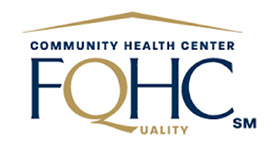AHL in the News, homepage, Access Health Louisiana Primary Care at Pythian, Belle Chasse Community Health Center, Kenner Community Health Center, South Broad Community Health Center, St. Bernard Community Health Center, St. Charles – Norco Community Health Center, St. Charles Community Health Center – Luling, St. Tammany – Slidell Community Health Center, Tangipahoa Community Health Center, Washington Community Health Center, Woodworth Community Health Center
The evidence-based intervention for fostering student success
By Chenier Reynolds-Montz, MBA, MS- Senior Vice President of School Health & Strategic Media
50 million students are enrolled in public schools across the United States but only 2,500 school-based health centers exist according to the National School-Based Health Alliance. In a society focused on equity, diversity, and inclusion, the need for more access to healthcare on campuses is great. School-based health centers offer a safe space, inclusive of all youth and adolescents, regardless their age, sex, race, ethnicity, insurance status or lack thereof.
The centers are a win-win not only for the students, but their parents and school districts as well. The National School-Based Health Alliance says that school-based health centers not only increase student seat time in classrooms, but help decrease dropout rates, improve student health and overall academic success.
With a post-pandemic mental health crisis facing our nation’s youth, school-based health centers are an evidence-based strategy that unites healthcare and education to treat the whole child. “Think about a teacher sitting in a classroom with about 20 to 25 kids. Every child that comes into the room is carrying a backpack full of emotional challenges and social challenges, so having those services available is very important to us as a school system.” Dr. Ken Oertling, Superintendent of St. Charles Parish School District.
“The most common diagnoses we see in our school-based health centers include anxiety disorder, PTSD, depression, and ADHD,” adds Kerry Nesbit, Licensed Professional Counselor with Access Health Louisiana. “We work with the students to get them to function at their best.”
The same is true for the primary care side. Medical providers working in school clinics not only offer acute care, but preventive medicine as well. This includes helping to educate diabetics on controlling their blood sugar levels, teaching healthy eating options to curb obesity, and even helping to detect the early on-set of disease. In addition to diagnosis and treatment options, school medical providers help to close care gaps for the student, offer continuity of care throughout the school day, and help boost immunization rates.
A January 2023 Morbidity and Mortality Weekly Report published by the Centers for Disease Control (CDC) highlighted that national vaccination rates for some diseases fell for a second year in a row. While the CDC partly attributes the decline to a post-pandemic fear of COVID vaccinations, schools worry the drop in immunization interest among some parents will contribute to school districts having to report fewer students meeting school immunization standards.
School-based health centers also offer a solution to the nation’s rising truancy problem. More than 16 million students in the United States are chronically absent according to the research group Attendance Works. Prior to the pandemic, the number of truants was estimated around 8 million. The American Academy of Pediatrics classifies a student as chronically absent when they miss 15 or more days of school. Behavioral or psychosocial problems, socioeconomic factors, and unstable support systems are partly to blame. However, lack of quality, accessible healthcare also plays a role.
Allen Parish School District’s Transportation and Special Services Director Kenney Courville agrees. “Kid’s physical health and mental health are sometimes barriers for them being able to attend school and get the best education that they can. For us to be able to offer school-based services and help students obtain the education that they need is vital. We work together to help make kid’s lives better.”
Collaborations between school-based health centers and health systems, school districts, and/or Federally Qualified Health Centers have helped many school clinics remain viable to best serve the student populations in Louisiana communities. While the majority of the state’s school-based health centers are located within public schools serving underserved, uninsured, and rural populations, the model of care can be extended to improve outcomes for any school type – public, private, or charter.
Through collaborations, a win-win scenario is created for students, parents, and schools. No organization knows this better than Access Health Louisiana, a FQHC based out of St. Charles Parish. This year, it has seen its school-based health center program expand from 24 locations to 41 locations in twelve parishes. It’s latest endeavor involves operating 17 school-based sites in Central Louisiana servicing schools in five parishes.
Commitments to helping future generations is extremely important, especially in Louisiana. With the state ranking 50th for overall health outcomes, according to America’s Health Rankings 2022 Annual Report, more emphasis needs to be placed on preventive care and health education involving Louisiana youth. While school-based programs have come a long way in our state, more focus must be placed on providing services where students spend the majority of their day – at school. Health plus education equals success.
“I am just excited about where we are going with school-based healthcare and to look back and to see how far we’ve come,” stated Arolyn Honor, Supervisor of Student Health Services with the St. Charles Parish School District.

